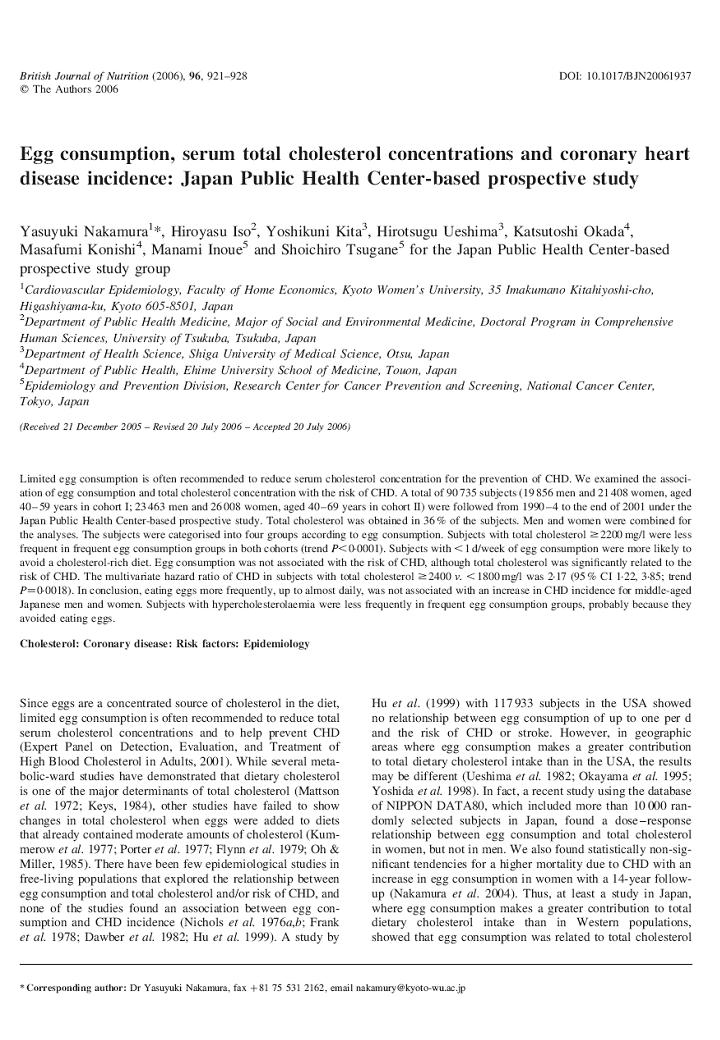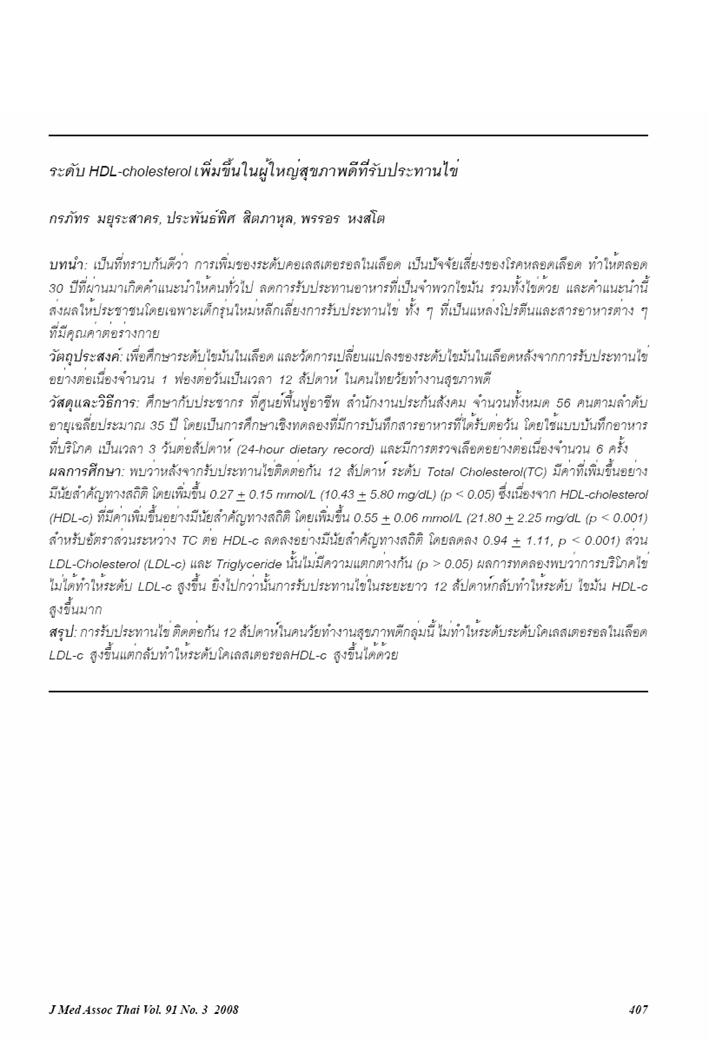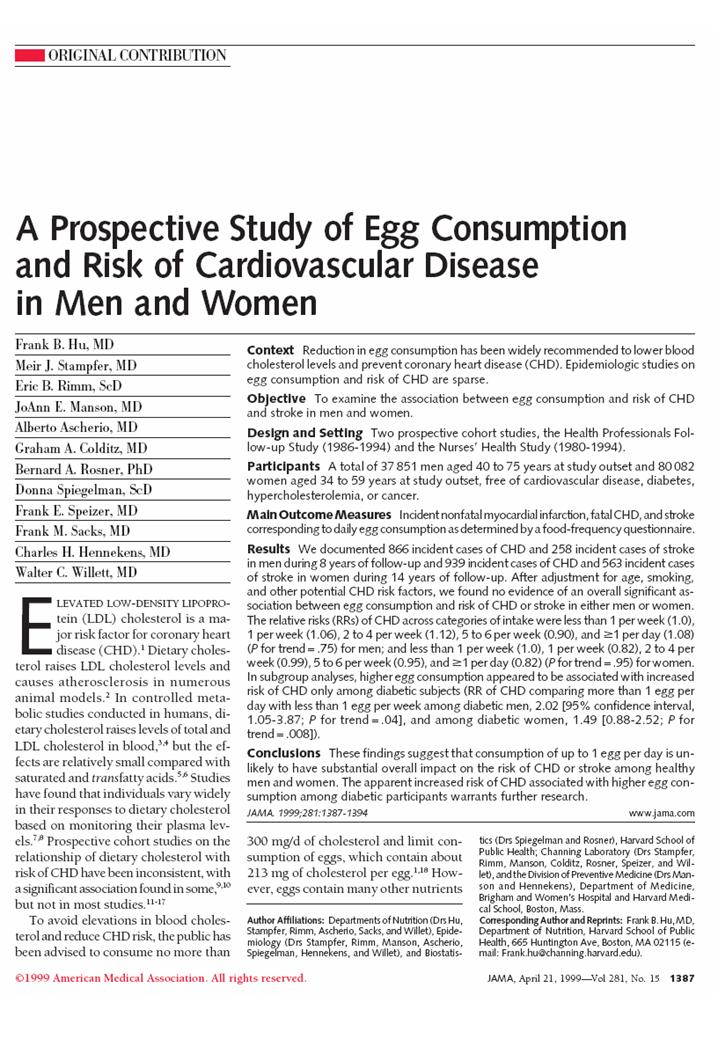 |
 ความคิดเห็นที่ 48
ความคิดเห็นที่ 48 |

[2]
High-Density Lipoprotein Cholesterol Changes after Continuous Egg
J Med Assoc Thai. 2008 Mar;91(3):400-7.
PMID: 18575296
http://www.mat.or.th/journal/index.php?command=preview&selvol=91&selno=3&selids=1997
Korapat Mayurasakorn MD*, Wilailuk Srisura MPS**, Prapunphit Sitphahul MPS***, Pun-orn Hongto MPS***
* Department of Social Medicine, Samutsakhon General Hospital, Samutsakhon
** Division of Nutrition, Department of Health Science, Ministry of Public Health, Bangkok
*** Department of Nutrition, Ramathibodi Hospital, Mahidol University, Bangkok
Objective: To determine the relationship between continuous egg consumption with Thai life-style dietary and serum lipids of healthy young people.
Material and Method: Fifty-six participants with an average age of 35 were enrolled. In an experimental method of cholesterol intake, all participants were fed an additional egg per day to their basic diet. This project ran for 12 weeks.
Results: The 12-week egg consumption significantly increased serum total cholesterol by 0.27 + 0.15 mmol/L (10.43 + 5.80 mg/dL) (p < 0.05). The HDL-cholesterol (HDL-c) increased significant by 0.55 + 0.06 mmol/L (21.80 + 2.25 mg/dL)(p < 0.001) while the total cholesterol (TC) decreased as the HDL-c ratio was 0.94 + 1.1 (p < 0.001). No significant changes were found in LDL-cholesterol (LDL-c) and triglyceride levels. The present study showed that small serum LDL-c changed in response to change of egg consumption. Additionally, 12-week egg consumption also resulted in an increasing HDL-c level.
Conclusion: In the majority of healthy adults, an addition of one egg per day to a normal fat diet could raise HDL-c levels and decreased the ratio of TC to HDL-c. Therefore, egg consumption might benefit blood cholesterol level.
Keyword : Cholesterol, Egg consumption
| จากคุณ |
:
ผู้สังเกตการณ์ 
|
| เขียนเมื่อ |
:
11 ต.ค. 52 22:27:43
|
|
|
|
 |





 อย่างน้อยงมเข็มด้วยเทียนเล่มเดียว ดีกว่าคลำหาเข็มโดยที่มืดสนิทไร้แสงไฟ
อย่างน้อยงมเข็มด้วยเทียนเล่มเดียว ดีกว่าคลำหาเข็มโดยที่มืดสนิทไร้แสงไฟ




